Using a SSAS – Residential property

A Small Self-Administered Scheme is a particular type of pension scheme often used by business owners to save for their retirement, the scheme normally gives greater control of the use and investment of monies than other retirement vehicles. A SSAS can be great way for the small and medium sized business to save on the company tax bill and at the same time create a pot of money for directors of the business to retire on. There are other benefits to the beneficiaries of a SSAS.
One of the best ways for a SSAS to be tax efficient is for it to own the building in which the business is conducted or its head office. The property is then ring fenced and not part of the business, so if the business does fail the property is protected. This is because a SSAS is a type of trust, a separate legal entity, and does not form part of a company’s assets. The rent is paid to the SSAS and is a tax deductible expense. A company can open more than one SSAS and can have multiple members to each SSAS. Generally a SSAS works well with commercial property, it is possible however to have residential property within a SSAS provided certain criteria are meet. The recent case J & A Young (Leicester) Ltd v HMRC 2015 sets out the criteria.The company in 2006 purchased a residential property into its SSAS, which was used to house foreign employees when they came to work in the UK, under the terms of their employment. HMRC took the company to tribunal arguing that the SSAS had an interest in a residential property that was taxable under FA 2004, s 174AThe taxpayer argued that the property was not taxable because it was a condition of employment that the employees lived there (para 10(2)(c)). Alternatively, condition B applied because the property was used in connection with the business premises held as an investment in the pension fund.The First-tier Tribunal said that the employment contract did not require employees to live in the property and therefore it could not be described as a condition of employment. Condition A was not satisfied.
The judge agreed with the taxpayer that condition B was satisfied. He said the use of the property as accommodation for the foreign employees working in the yard was a “sufficient connection” for the purposes of para 10(3)(b). It was bought for that reason and used only by such employees. The arrangements were not artificial and there was a direct connection between the property and the yard.
The Finance Equation part-time finance directors are qualified accountants with many years of experience in Small & medium sized businesses. They help business obtain growth finance, improve cash management, improve management information systems and mitigate tax liabilities. Contact us to find out how we can make a difference to your business.
Primary contact:
Mr Aadil Butt FCCA
Tel: 07792 542 944
Email: aadil@finance-equation.co.uk
website: www.finance-equation.co.uk
